The views expressed in our content reflect individual perspectives and do not represent the authoritative views of the Baha'i Faith.
Baha’is follow the teachings of the prophet and founder of the Baha’i Faith, Baha’u’llah – and they also attempt to follow the spiritual example of Abdu’l-Baha, Baha’u’llah’s son and successor.
Today Abdu’l-Baha’s exemplary life – selfless, altruistic, and entirely devoted to world peace and oneness – inspires millions of people all over the world. It also has a special resonance for the Baha’is in North America, because he visited the United States and Canada for eight months in 1912.
Only with the passage of time can we truly appreciate the magnitude and the historic importance of Abdu’l-Baha’s visit.
RELATED: Ambassador to Humanity — Episode One: The Early Years
After a lifetime as an exile and a prisoner, Abdu’l-Baha came to the global West to spread the Baha’i principles of justice, compassion, and unity. In conversations small and large, he bestowed love, guidance, knowledge, and vision to each soul he encountered.
He spoke to huge audiences at universities like Columbia, Howard, and Stanford. He addressed the congregations at many diverse places of worship. He gave hundreds of media interviews, answering questions about Baha’u’llah’s teachings. He counseled groups and individuals, from the wealthiest to the poorest. In his speeches, addresses, and actions he delivered a holistic prescription for the advancement of human civilization, recommending racial harmony, disarmament, and human solidarity. Speaking at the Masonic Temple in Chicago, he said:
The differences existing between nations and peoples will soon be annulled, and the fundamentals of the divine religions, which are no other than the oneness and solidarity of the human race, are being established. For thousands of years the human race has been at war. It is enough. Now let mankind, for a time at least, consort in amity and peace. Enmity and hatred have ruled. Let the world, for a period, exercise love.
On that historic journey Abdu’l-Baha sowed spiritual seeds, and those of us living today benefit from the precious mighty trees he planted. He met with people from all backgrounds and clearly, and yet humbly, impressed all with his combination of God’s spiritual attributes. For Baha’is, he represented the perfect example of how to live a spiritual life, brilliantly reflecting the light of the revelation of Baha’u’llah.
During this centenary year of Abdu’l-Baha’s passing, the Universal House of Justice – the democratically-elected leadership body of the world’s Baha’is – called for a “profound reflection on the life of Abdu’l-Baha and the strength of the Covenant of which He was the Centre.” Around the world, individuals, communities, and institutions responded to this call by reading Abdu’l-Baha’s writings, recalling stories of his life, and more deeply examining how we can try to follow in his footsteps by emulating his remarkable example.
Given the relationship of the material and the spiritual world, those of us who live in cities and neighborhoods that Abdu’l-Baha visited during his travels to the West feel especially blessed, because we can visit the places he went – we can walk, if only temporarily, in his actual footsteps.
With the loving blessing and encouragement of the Local Spiritual Assembly of the Baha’is of New York City, a group of Baha’is recently organized a series of walking visits to seven of the sites where Abdu’l-Baha visited and spoke during his days in New York – which he referred to as “The City of the Covenant.” During October and December 2021 hundreds of people participated.
Our first visit, on October 17, 2021, took us to the Church of the Ascension, where Abdu’l-Baha spoke. Along with the sound of the famous pipe organ at the Church – the same one that announced Abdu’l-Baha’s entrance on April 14th, 1912 – the choir sang “Jesus lives.” The Baha’i community was warmly welcomed by the church administrators, and afterwards we walked to the nearby home of Juliet Thompson, an early Baha’i artist and the author of The Diary of Juliet Thompson. Near her home in Greenwich Village, we said prayers and shared stories of the early disciples of the Master, as Abdu’l-Baha was known.
Our second tour took place on October 24th and honored Abdu’l-Baha’s historic participation in The Lake Mohonk Conference on International Arbitration, the predecessor gathering to the formation of both the League of Nations and the United Nations. There, Abdu’l-Baha famously said:
All the wars which have taken place since the inception of human history have emanated either from religious prejudice, racial prejudice, patriotic bias or political greed and interest. As long as these prejudices last, so long will the foundations of humanity tremble.
We commemorated this major address of Abdu’l-Baha’s at the New York City Baha’i Center in Manhattan with a memorable program of music, a reading of the talk on peace given by Abdu’l-Baha at the Conference, and Persian desserts.
On October 31st, we visited Columbia University and one of the Baha’is recited the talk given by Abdu’l-Baha at that spot, where he said:
God has created us all human, and all countries of the world are parts of the same globe. We are all His servants. He is kind and just to all. Why should we be unkind and unjust to each other? He provides for all. Why should we deprive one another? He protects and preserves all. Why should we kill our fellow creatures? If this warfare and strife be for the sake of religion, it is evident that it violates the spirit and basis of all religion. All the divine Manifestations have proclaimed the oneness of God and the unity of mankind.
We were all brought back to the time of that historic event at which Abdu’l-Baha was welcomed at Columbia’s Earl Hall by a large number of intellectuals and students.
On Nov. 7th at the Bowery Mission under the inspiring music of a jazz band, Lloyd Laurence read the talk Abdu’l-Baha‘s gave there on poverty and homelessness, and we all listened to the warm speech of the pastor Jason Storbakken welcoming the Baha’is.
RELATED: Who Is Abdul-Baha and Why Is His Station Significant?
On November 14th, the New York Baha’is joined Baha’is from New Jersey to visit and tour the Baha’i cabin in Teaneck, remembering the picnic organized there by Abdu’l-Baha himself at the end of June, 1912. We shared the talk Abdu’l-Baha gave on that day, along with prayers and songs by children and their teachers and parents.
On November 21st, we visited the JP Morgan library, learning more about the history of Abdu’l-Baha’s visit there, which was covered by New York Times.
Our walking tours concluded on December 5th, when we visited Pier 62 on the Hudson River, from where Abdu’l-Baha sailed away from North America. Children enjoyed creating paper boats to sail on the Hudson River with flower wreaths containing prayers for New York City and America in a small glass bottles, hoping someday someone will find them. We symbolically said goodbye to the Master, remembering his profound last words addressing the Baha’is from the ship:
This is our last day and my last meeting with you. In a few minutes our steamer will leave these shores and this is my last exhortation to you. I have repeatedly spoken to you and invited you to realize the oneness of humanity. I have impressed upon you that all human beings are the servants of the same God and God is kind to all; He provides for all and gives life to all. In the presence of God all are His servants and His bounties are equally distributed among all. We must also be kind to the people of the world and forget all religious, racial, patriotic and political prejudices. The whole earth is one globe. All nations are one family. All are the servants of one God …
I hope that each one of you will be assisted to act according to these teachings so that, like a brilliant star, you may give light to humanity and like a spirit move the body of the contingent world. This is eternal glory! This is everlasting happiness! This is the image and likeness of God and unto this I call you! I pray God that you may attain it.
The opportunity to visit these historic sites was a great privilege for each one who participated, inspiring all of us to try to walk in Abdu’l-Baha’s footsteps in the days and years to come.


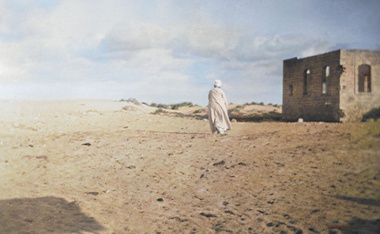
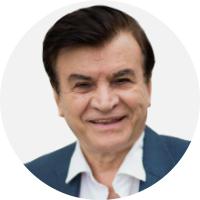
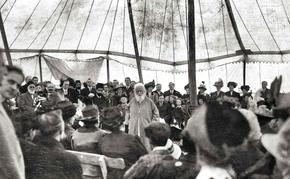
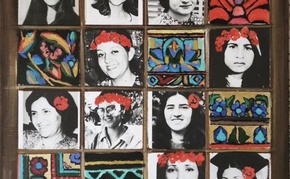








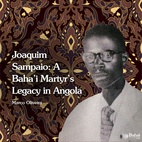


Comments
Sign in or create an account
Continue with Googleor